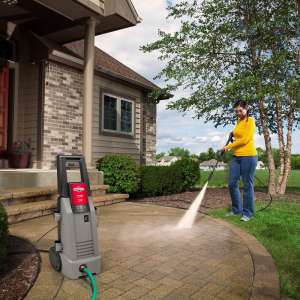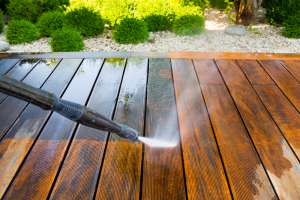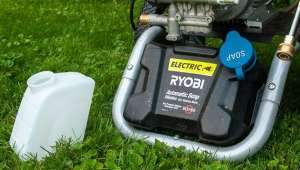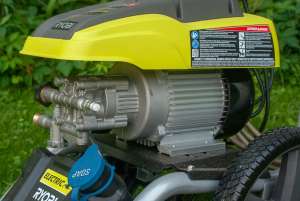Importance Of Understanding The Difference Between The PSI And GPM Rating Of A Power Washer
Like most consumers, the first thing you probably for in a power washer is its PSI rating. However, if you truly want to determine its cleaning capability, you have to take into consideration both PSI and GPM.
Both are important since they work together to provide you with the most effective cleaning. Also, the levels you need to look for will depend on the cleaning jobs you have in mind and the amount of time you want to invest in every session.
So if you’re not clear about these pressure washer characteristics, this article is for you.
Why Do PSI And GPM Matter?
If you’re looking to clean your surfaces effectively, your power washer needs to not only separate filth and dirt from it, but rinse them all away as well. The capacity of your equipment to remove grime is measured partially by PSI. Meanwhile, its rinsing capability is measured by GPM.
Thereby, if you’re looking for the best pressure washer for your needs, you need to be aware of these factors. Also, make sure to read power washer reviews from this official source.
What Is Pressure Washer PSI?
When you’re on the market for a pressure washer, one the first references you’d notice is its available PSI or pound per square inch. This unit refers to the force of water pressure coming out from the washer’s pump and through the high-pressure hose at the input side of the nozzle. Likewise, it provides you with an idea of a unit’s cleaning power. Therefore, when a pressure washer sports a higher PSI, expect it to lift even the most stubborn and most vicious gunk.
If you’re looking to buy a machine for commercial applications, look for those with a PSI ranging around 2,000 to 3,000. These numbers mean that the pressure washer is effective enough for the cleaning you have in mind. Nonetheless, there are commercial power washers with a PSI that go as high as 5,000 or even more.
On the other hand, those with 1,000 to 1,800 PSI are more suitable for residential use. These types of pressure washers are usually electric and will be able to take care of your driveway, sidings, patio, car, and more.
What Is Pressure Washer GPM?
The GPM or gallons per minute is the volume of water coming out of your pressure washer’s nozzle every minute. It is also referred to as flow rate, and it’s what will help you rinse all those debris away once you’re done lifting them from the surface.
Generally, the main advantage of a unit with a higher GPM is speed. So the more rinsing power you have, the faster you’ll finish the task at hand. When looking for a residential pressure washer, those with a 1.5 to 2.0 GPM is enough to handle almost all cleaning jobs around your property without any problem. Meanwhile, for commercial types, the most effective range can be anywhere from 2.2 to 10 GPM, depending on your intended purpose.
What About CU?
CU or cleaning units is the rating that helps you understand how you can quickly tackle your cleaning projects. It is calculated by multiplying a power washer’s PSI by its GPM.
For example, a unit with 2,000 PSI and 2 GPM has a 4,000 CU rating. So the higher the CU is, the quicker your cleaning sessions will be. This means that even if a washer has a higher PSI, it doesn’t mean that it’ll finish the chore faster.
Still, it is worth noting that machines with lower PSI may not be able to take care of tougher jobs. Thereby, even if your pressure washer with 2,500 PSI may take a bit longer to wash, it may provide you with overall deeper cleaning.
But the best thing about these cleaning devices is that you can change its PSI rating easily with the help of pressure washer nozzle attachments. Some models even come with various nozzle tip sizes, making it simple to decrease their PSI to make them suitable for your cleaning needs.
Which Power Washer Rating Is More Important?
Both PSI and GPM are essential in determining the cleaning capacity of a power washer. Nevertheless, professional cleaners and contractors often give more attention to a washer’s GPM. The reason for this is because they usually apply strong detergents on the surfaces they’re cleaning. This helps dissolve grime and dirt more effectively so that it’ll be easier to lift them off from surfaces.
Furthermore, it’s also vital to understand that washers with more than 3,500 PSI deliver pressure that can cause damage to certain types of surfaces. So if you need additional stripping power to get rid of stubborn dirt, it’s better to just increase water temperature and combine it with the right detergent for your power washer.
Additionally, more powerful units demand more physical efforts on your part since you need to offset the water stream’s force.

















